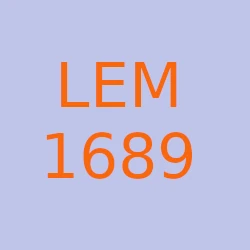It annoys me even though I’m still in the U.S.
Edit: For everyone saying CVs and resumes are different, that might be literally the case, but that is not how job applications are using them. I just went to this one:

The only correct format is from greatest to smallest: yyyy-mm-dd
This is, in my mind, verifiable by noting the way that lists are ordered when using this format. They are sequential. This isn’t true for either of the other formats.
As a programmer I agree. I have fucked around with trying to parse unrestricted user inputs of dates and I have found out.
Year first is the only way I can actually know which value is day vs. month.
Why don’t programmers make a programme that can read dates instead of complaining that dates aren’t in a obscure format?
They in control of their own issues.
The date is 12/11/2024. Am I talking about yesterday or a day about a month ago?
Yesterday unless you’re mental.
Is 27 outside right now. What am I talking about?
YYYY-MM-DD is the only non-mental way to write either.
I was only answering your question about why programming a way to parse those common date formats is problematic.
Because all the other programmers suck.
Haha
deleted by creator
Yes.
If I saw that in a job advert I might just apply without reading the rest. I don’t think I ever have though.
It’s great for lists but I don’t know a single person who’s gonna say “hey let’s meet up on 2024 December 11th.”
Dates written in a numbers only format are not about matching the spoken language. You also would not say, “let’s meet on twelve eleven twenty twentyfour.”
In German and Swedish, “the twelft eleventh” would be totally fine. Beside this would be November 12th. The German way for the year would be twothousandtwentyfour while the Swedish would be twentyhundred twentyfour.
It’s the format used in large parts of Asia.
You must not know many programmers that have had to deal with American date formatting then.
I used to be a programmer myself (originally studied it for game design but now I’m a 3d animator) and it’s why there’s a specific default data structure built in to most programming languages to handle dates and internationalization of those dates.
Please someone tell oracle and microsoft.
https://docs.oracle.com/javase/8/docs/api/java/util/Date.html
https://learn.microsoft.com/en-us/dotnet/api/system.datetime?view=net-9.0
Looks like someone already did. Been around since at least JDK 1.1
They need to be told a fuck of a lot harder then.
If you really need a specialized toolset to handle managing dates and times in a program beyond whats already there, then find a library that has the tools you’re looking for or make it yourself if it doesn’t exist. Extending the date class is always an option.
When you are writing the date, the only correct way is ISO8601 (YYYY-MM-DD). If you’re speaking to someone (verbal communication) then do whatever you want.
when making someone a cup of tea, the only correct way is ISO3103. if youre making it for yourself then do whatever you want.
Holy shit, that ISO is real. https://en.m.wikipedia.org/wiki/ISO_3103
It is and makes an ok, but reproducible cup of tea. As per the relevant Tom Scott video mentioned in the article.
There is a reason though. It’s because you probably want to put dates in order and when you ask a computer to sort things for you, it will automatically order things correctly when the date follows this format. If you put the month first, then the day, then the year, the default sorting behavior will order things incorrectly chronologically speaking.
when you ask a computer to sort things for you, it will automatically order things correctly when the date follows this format
I’d go even further than that, and point out that the reason why computers sort things in this order is because that’s the most logical way to convey specific dates.
Most significant digits on the left, descending left to right, in order, is how we do all other numerical representations. It’s only dates that we have different norms.
Any important document I have is named ‘yyyymmdd(number)(briefdescription)’. Sort by name or date, I don’t care
MM/DD/YYYY would annoy me wherever it’s from, because it’s wilfully perverse.
It’s from the country that elected a pervert, so…
Do you have any idea how little that narrow it down?
It matches the speech order in English. Today is December eleventh, 2024.
Where did you get this idea from? In British English 11th of December is more common. I’m open to the idea that American English does it differently and that’s fine but to assert that the entire English speaking world does it like that is incorrect and ignorant.
In Canada we usually say Tuesday December 11th, like if someone is giving us an appointment date. It’s colloquial, I guess, a little more succinct.
We might say December the 11th as well but that’s definitely the less common of the two.
It’s american/Canadian English. We say December 11th, 2024, we write it like we say it.
Maybe where you live, but no. Today is actually the 12th of december. Yanks like to say thats how it is but I have never, or rather rarely, heard them call their independence day July 4th. It’s always 4th of July. So, no. Its not the speech order.
Sure. But we also say “September 11th” when referring to the world trade center attacks.
4th of July is the exception in American English.
Independence Day is the sole exception in common speech. I suspect this is a older style carried forward into today. Any other date, like today’s, is Month Day (ordinal). Halloween is said October 31st, not the 31st of October. The latter is also much longer.
Cinco de Mayo is of course not in English.
The 4th of July falls on July 4th. I can assure you as someone who has lived in the US for my entire life, we say it out loud, month, day, year and we write it to match that.
Is there a Lemmy community for /c/ShitAmericansSay
Nope. It’s the 12th of December . Just like the 4th of July, or having Christmas “on the 25th”
Disclaimer: am American.
I say the 4th of July because it’s a holiday. July 3rd, 5th, etc are all month/day. I don’t know why just what “sounds right” and it’s what I was taught. It threw me for a loop working with people over seas when I saw 13-10-24. We quickly noticed the confusion and swapped to spelling months out
I work for an international company based in the US, but I am not in the US myself. I have been trying for years to get our American colleagues to use three letter abbreviations for the month to avoid ambiguity, for example in global emails. With a couple of small exceptions, I have been unsuccessful in convincing them of the need to be clear in their written communication to people in the rest of the world.
Not in nz
The date thing is infuriating because the American date format just shouldn’t exist
ISO is best. There’s no debate there. From a data science perspective, YYYY/MM/DD is the only reasonable choice.
But most of the time you’re using dates, you’re only concerned with the month and day. That’s the very reason we don’t use ISO in our daily lives. If you started every mention of a date with the year, people would think you’re a crazy person, or a time traveler, or perhaps a recently-awakened coma patient. There’s just no need to begin with the year. Next Wednesday, 2024 December 18.
If you exclude the year, then the choice is month/day or day/month. Between the two, month/day is far more useful for the same reasons ISO is best. If I need both the month and the day, then I want the month first. The only time I would want the day first is if the month doesn’t matter, and I can omit the month in that case. Giving me the day first and then the month forces me to wait for the month and then remember the day. It’s inefficient transfer of information. If you exclude the year, MM/DD is objectively, if only marginally, better than DD/MM.
But then why would anyone use MM/DD/(YY)YY? Because we’re already using MM/DD.
Ahem - there is a debate… it’s over
/vs.-. As is proper - all true debates should be over minor formatting decisions (soft tabs over my fucking dead body)./can’t be used in a filename on most common filesystems so that doesn’t enter the conversation the real question is if you include-as a delimiter at all.20241212or2024-12-12? They are fixed width fields so I skip the delimiter when I’m storing data* but tend to use the delimiter when writing for a general audience.* Y10k problem right here!
What programmer in their right mind uses / instead of -?
I use the delimiter when writing out log files when I want hour or minute in the logfile name. SantaChimneyLog_20241225-0312.txt. Otherwise yeah it just gets left off.
ISO 8601 gets a bit weird with times.
Using
Tto separate the date and time components looks a but strange but is unambiguous and widely compatible.Then the
:delimiter between the time components is just impractical because, well again we put data in files and files live in filesystems. Any special characters that can’t be used in filenames on all major filesystems is a nonstarter.
I’ll see you on the 1st of the 1st.
I see nothing wrong with that. The day number moves most frequently, so that should go first. The month moves second most frequently, so that should go second. Putting the month first makes it odd.
Why would the number that moves most go first? Numbers don’t work that way normally.
The day number moves most frequently, so that should go first.
Are you German? How do you read 35? Is it 5 and 30? Or 30 and 5? Because the most significant number comes first, the one that moves most cones last.
No, I am not. I just say dates the way people in my country say them, as do you, I suppose.
Do you also say “six, fifty and two hundred” instead of “two hundred and fifty six”?
Fair play…this is just how we say dates.
The dates are written to match how it’s said. In the US we say our dates as month day year, and before you say “But the 4th of July” my counterpoint is that the 4th of July takes place on July 4th. And Cinco de Mayo takes place on May 5th. And May the Fourth Be With You takes place on May 4th.
I never thought of that. Thanks for the clarification.
Glad to provide some honest perspective.
It just depends on how you say it out loud.
Here in the us, we would say today is December 11th, so we write it the same way, 12/11.
Other parts of the world would say today is the 11th of December, so they write it that way, 11/12.Its the ISO format everyone loves but from the time before digital computers needed to sort our dates, so we put the year at the end as it’s generally the least important if something isn’t digital
I get not liking something cuz it’s different, but it amazes me how many people pretend it’s bad
I’m not from either place.
I was under the impression that a CV and a resume are different things. A CV is a general compilation of all things you’ve done, and a resume is a curated list used for applying to jobs.
I do know that they’re used interchangeably for the most part, but this is how I was explained the difference in practice.
They seem to be used interchangeably in the UK at the jobs I’m applying for, but what I have is definitely CV and not resume.
They are the same thing.
Lots of things list them both with a slash showing then to be the same thing.
CV is more correct though.
They’re definitely not the same thing even though they’ve been used interchangeably more and more.
A CV is a comprehensive overview of everything you’ve accomplished and can be fairly long in certain cases (I’ve seen CVs of specialized professionals or tenured professors that are close to 10 pages long).
On the other hand, a resume is a concise list of your relevant skills and experiences that should be tailored to the position you are applying to and should almost never be longer than 2 pages.
I don’t know what to say.
This is just outright wrong. But you so confident about it I doubt anything I will say matters.
Every single person I have ever spoken to. From teachers in school, university advisors, parents, friends, family, HR staff, bosses, have said that a CV is no more than 3 pages. Almost always it is said to be 2, sometimes 1 is offered and very occasionally I have heard 3. But never more. Should always be tailored but I have heard people making generic enough ones that can be used for similar jobs.
I guarantee almost all job that specifically asks for a CV would throw out a 10 pager.
Unless you are talking about how things were in the 1800’s this is just wrong. Which I doubt anyone got a job with more than a handshake before 1945.
Maybe things are different here in Canada but that’s how I’ve always had it outlined. What you’re describing would be called a resume here and not a CV. The intents of the two documents are not the same.
Most CVs that I’ve seen are usually closer to 3-5 pages but I’ve seen some that are ~10 pages.
No, they are the same thing.
They are not
Oh. Okay. So just different words? Like sidewalk & footpath?
Some people say that a resume is a shorter CV. But even a CV should only include the things relevant to the task you’re using for.
Not traditionally. A CV should contain essentially everything whereas the resume is tailored to the specific position.
CVs are much more common for academic positions but I’ve also seen them required for very specialized roles.
How do you explain that in Europe pretty much all countries only use the word CV then for any job?
By saying that I didn’t realize it was different in Europe. Often when we (Canada) do something different than the US, it’s because it’s closer to how it’s done in Europe and I assumed this was one of those cases.
I’m planning on looking into this more when I have some free time as I’d like to understand where our approach to both documents came from.
Fair enough :)
In all countries in Europe I’ve been, CV is used both as a “life document” and a targeted document to a specific job.
It doesn’t “annoy” me.
I like employers to be open and honest about their various incompetencies. Saves time.
There’s a few other warning signs in that statement too - nice of them sift themselves out so quickly.
This.
Without going into the rabbit hole of explaining:
Curriculum Vitae: all your education, training, experience, skills. Can be multiple pages. Resume: the highlights + relevant for the application. Preferred on one page. Resume goes on top of the CV.
They’re similar, but used for different purposes. According to UC Davis (University of California), these are the differences

“CV” is definitely not only used for academic positions in the UK. They almost always say CV instead of resume. That’s much less common than the date format.
I am from Europe. About the dates, for me it depends.
In personal things, I generally use the American date format because I got used to it. And when going through a list of things month first is often nicer to look at.When giving something to someone else, I use date compatible with RFC3339 and ISO8601 standards (YYYY-MM-DD).
Quick comparison between the two: https://ijmacd.github.io/rfc3339-iso8601/But people have questioned me about both, since DD. MM. [YY]YY is basically the only format used in my country, but I don’t like it.
As for dates, it’s possible it’s stored as a raw date and downstairs for display. If that’s the case it could be up to the browser to suggest a localization for form input and display. I can’t say for that site you are using but it is possible.
Im british and yes that annoys me.
Need more people like David Mitchell to complain about these things.
It’s the same shit as the kids saying “candy” instead of sweets in the UK, and getting british accents from Peppa Pig in the US.
The date stuff is super stupid though :
-
Fuck the US date scheme
-
You don’t need fucking day numbers for anything on your CV, except your DOB.
-
7th Jan 2007 . You’re welcome, now it doesn’t really matter which order you put the DD/MM
7th Jan 2007 . You’re welcome, now it doesn’t really matter which order you put the DD/MM
But do you write September as Sep, or Sept? I’ve heard that this is also a British/USA thing
doesn’t matter in this context, both can be interpreted as the ninth month
-
academia in the us tends to use curiculum vitae.
That’s a different thing
For everyone downvoting me, an American CV is different from a standard British CV or an American resume
The person specifically mentioned academia, and CV are most often used in academia for jobs, grants, whatever. So the person you responded to is correct.
An American résumé is a CV to the British.
Yes, there are differences between the US and European variations, and people misusing the terms and not understanding the formats has further muddied the waters, so there’s nothing to be solved by debating it here. Anyone wishing to actually adhere to specific formats can google it themselves.
Yeah, and I was pointing out that it isn’t just a terminology difference, which is what was being discussed here.













